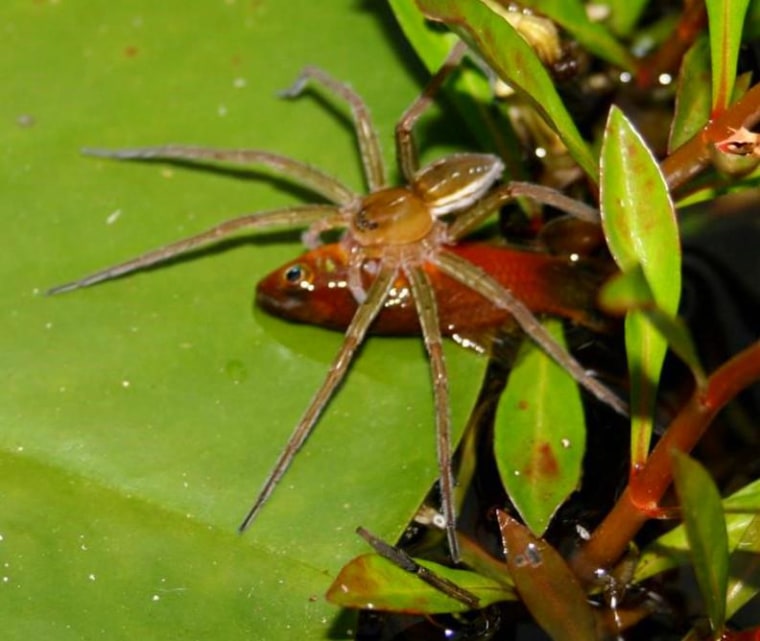Not all spiders catch their prey by spinning webs; a surprising number of arachnids quite literally fish for their meals, snatching scaly animals sometimes twice their size.
In fact, a new scientific review found that fish-eating spiders lurk near rivers, ponds and swamps on every continent except Antarctica. They've lifted small catfish out of marshes in Ecuador; grabbed killifish out of nets in Cameroon; devoured dwarf fish in California aquariums; and stalked hatchery ponds in Oklahoma, continuing to kill fish even after eating their fill.
Sign up for Science news delivered to your inbox

Arachnologist Martin Nyffeler, of the University of Basel in Switzerland, and fish ecologist Brad Pusey, of the University of Western Australia, pored over scientific papers, citizen reports and photos from around the world and collected 89 such instances of spiders eating fish. Their review was published Wednesday in the journal PLOS ONE. [See Photos of the World's Fish-Eating Spiders]
Until now, only a handful of semiaquatic species from the Pisauridae family (or nursery web spiders) had been recognized as fish eaters, Nyffeler said. But he and Pusey found that at least 18 different spider species have been seen catching fish in the wild. Another six species have been observed eating fish in lab settings.
For spiders, the rewards of fishing are great. Much of an insect's weight comes from its hard exoskeleton, which isn't useful to spiders in terms of food energy. In contrast, fish are made up of mostly muscle, and the only nondigestible parts are their scales, skin and skeleton. What's more, fish-eating spiders, on average, nab fish more than twice their size — "a big-ticket item," Pusey said.
— Megan Gannon, LiveScience
This is a condensed version of a report from LiveScience. Read the full report. Follow Megan Gannon on Twitter and Google+. Follow LiveScience on Twitter, Facebook andGoogle+.